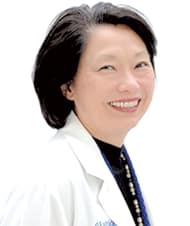
There are over 3 million breast cancer survivors in the United States. The majority of women are diagnosed with early stage (Stage I and II) breast cancer. The five-year survival remains over 90% for these patients.
Common “MYTHS” about breast cancer:
1.) MYTH: All breast cancers are the same.
TRUTH: each breast cancer is as unique as the patient. They all behave differently based on markers/receptors expressed by the cancer cells. Genetic profiling can be used to further characterize each cancer. This allows us to determine if treatment such as chemotherapy would be effective and provide a survival benefit. Therefore, you cannot compare your cancer and treatment plan with anyone else. Your cancer is as unique to you as your fingerprint!
2.) MYTH: Regular mammograms can prevent cancer.
TRUTH: Digital mammography currently remains the gold standard for screening for breast cancer. They don’t prevent cancer, but decrease mortality of breast cancer by detecting cancer at an early stage. A newer form of mammography called TOMOSYNTHESIS (3D mammography) is FDA approved and may replace standard mammography in the near future. Eastside Medical Center was the first hospital in Gwinnett County to offer 3D Mammography. 3D Mammography is a proven screening exam that results in 40% improvement in cancer detection while decreasing patient call backs.
3.) MYTH: I have no family history of breast cancer, so I don’t have to worry.
TRUTH: Only 10% of breast cancer is hereditary, which means that the patient has a genetic mutation, which is passed from parent to child. I.e. BRCA gene. Most breast cancers are sporadic; therefore, many women may be the first, and only, members in their family diagnosed.
4.) MYTH: Needle/surgical biopsy will cause spread of cancer: “air will feed the cancer”
TRUTH: There is NO evidence that biopsies cause the spread of cancer. Today, the majority of breast biopsies should be approached with needle biopsy first. Surgical biopsy is reserved for special cases. This change from surgical to needle biopsy for diagnosis has been the standard since the early 2000s.
5.) MYTH: There is nothing you can do to lower your risk for developing breast cancer.
TRUTH: There are lifestyle factors that can increase your breast cancer risks.
•Obesity– increases risk especially after menopause. It also increases risk of recurrence in women who have already been diagnosed with breast cancer. Fat cells produce weak estrogen which can stimulate development/recurrence of breast cancer.
•Lack of exercise– linked to obesity but also related to higher levels of Insulin growth factor, which can affect how breast cells grow.
•Hormone Replacement Therapy (HRT)– prolonged use without any breaks in their usage has been linked to increased breast cancer risk.
•Alcohol- 1-2 drinks per day increases breast cancer risk.
6.) MYTH: If I have BRCA1/2 genetic mutation, I will definitely develop breast cancer.
TRUTH: If you are a carrier of a deleterious mutation (BRCA1/2), you have a much higher risk of developing breast (and ovarian) cancer but NOT 100%.
Options:
•Remove both breasts (prophylactic mastectomy)
•Medical Risk reduction- Tamoxifen (antihormonal) therapy and high-risk screening with mammogram/MRI.
7.) MYTH: If I ask for a second opinion, the doctor will get insulted.
TRUTH: Second opinions are very important if you are not comfortable with the recommendations of your doctor. Breast cancer treatment is very complex and individualized to each patient. Your treatment plan is multidisciplinary, i.e. doctors from multiple specialties. The breast cancer patient will have a surgical oncologist, medical oncologist, possible radiation oncologist, and possible plastic surgeon. You must feel comfortable with your doctors and your treatment plan. MOST IMPORTANT, Google search does not count as a second opinion. Reserve your discussions regarding your oncologic treatment with those physicians who treat breast cancer on a daily/regular basis.

